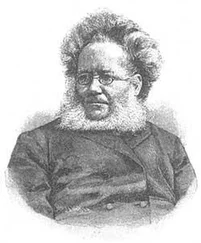Генрик Ибсен - An Enemy of the People
Здесь есть возможность читать онлайн «Генрик Ибсен - An Enemy of the People» весь текст электронной книги совершенно бесплатно (целиком полную версию без сокращений). В некоторых случаях можно слушать аудио, скачать через торрент в формате fb2 и присутствует краткое содержание. Год выпуска: 2014, Издательство: epubBooks Classics, Жанр: Драматургия, на английском языке. Описание произведения, (предисловие) а так же отзывы посетителей доступны на портале библиотеки ЛибКат.
- Название:An Enemy of the People
- Автор:
- Издательство:epubBooks Classics
- Жанр:
- Год:2014
- ISBN:нет данных
- Рейтинг книги:4 / 5. Голосов: 1
-
Избранное:Добавить в избранное
- Отзывы:
-
Ваша оценка:
- 80
- 1
- 2
- 3
- 4
- 5
An Enemy of the People: краткое содержание, описание и аннотация
Предлагаем к чтению аннотацию, описание, краткое содержание или предисловие (зависит от того, что написал сам автор книги «An Enemy of the People»). Если вы не нашли необходимую информацию о книге — напишите в комментариях, мы постараемся отыскать её.
An Enemy of the People — читать онлайн бесплатно полную книгу (весь текст) целиком
Ниже представлен текст книги, разбитый по страницам. Система сохранения места последней прочитанной страницы, позволяет с удобством читать онлайн бесплатно книгу «An Enemy of the People», без необходимости каждый раз заново искать на чём Вы остановились. Поставьте закладку, и сможете в любой момент перейти на страницу, на которой закончили чтение.
Интервал:
Закладка:
Aslaksen. It appears to me that the speaker is wandering a long way from his subject.
Peter Stockmann. I quite agree with the Chairman.
Dr. Stockmann. Have you gone clean out of your senses, Peter? I am sticking as closely to my subject as I can; for my subject is precisely this, that it is the masses, the majority—this infernal compact majority—that poisons the sources of our moral life and infects the ground we stand on.
Hovstad. And all this because the great, broadminded majority of the people is prudent enough to show deference only to well–ascertained and well–approved truths?
Dr. Stockmann. Ah, my good Mr. Hovstad, don't talk nonsense about well–ascertained truths! The truths of which the masses now approve are the very truths that the fighters at the outposts held to in the days of our grandfathers. We fighters at the outposts nowadays no longer approve of them; and I do not believe there is any other well–ascertained truth except this, that no community can live a healthy life if it is nourished only on such old marrowless truths.
Hovstad. But, instead of standing there using vague generalities, it would be interesting if you would tell us what these old marrowless truths are, that we are nourished on.
(Applause from many quarters.)
Dr. Stockmann. Oh, I could give you a whole string of such abominations; but to begin with I will confine myself to one well–approved truth, which at bottom is a foul lie, but upon which nevertheless Mr. Hovstad and the "People's Messenger" and all the "Messenger's" supporters are nourished.
Hovstad. And that is—?
Dr. Stockmann. That is, the doctrine you have inherited from your forefathers and proclaim thoughtlessly far and wide—the doctrine that the public, the crowd, the masses, are the essential part of the population—that they constitute the People—that the common folk, the ignorant and incomplete element in the community, have the same right to pronounce judgment and to, approve, to direct and to govern, as the isolated, intellectually superior personalities in it.
Billing. Well, damn me if ever I—
Hovstad (at the same time, shouting out). Fellow–citizens, take good note of that!
A number of voices (angrily). Oho!—we are not the People! Only the superior folk are to govern, are they!
A Workman. Turn the fellow out for talking such rubbish!
Another. Out with him!
Another (calling out). Blow your horn, Evensen!
(A horn is blown loudly, amidst hisses and an angry uproar.)
Dr. Stockmann (when the noise has somewhat abated). Be reasonable! Can't you stand hearing the voice of truth for once? I don't in the least expect you to agree with me all at once; but I must say I did expect Mr. Hovstad to admit I was right, when he had recovered his composure a little. He claims to be a freethinker—
Voices (in murmurs of astonishment). Freethinker, did he say? Is Hovstad a freethinker?
Hovstad (shouting). Prove it, Dr. Stockmann! When have I said so in print?
Dr. Stockmann (reflecting). No, confound it, you are right!—you have never had the courage to. Well, I won't put you in a hole, Mr. Hovstad. Let us say it is I that am the freethinker, then. I am going to prove to you, scientifically, that the "People's Messenger" leads you by the nose in a shameful manner when it tells you that you—that the common people, the crowd, the masses, are the real essence of the People. That is only a newspaper lie, I tell you! The common people are nothing more than the raw material of which a People is made. (Groans, laughter and uproar.) Well, isn't that the case? Isn't there an enormous difference between a well–bred and an ill–bred strain of animals? Take, for instance, a common barn–door hen. What sort of eating do you get from a shrivelled up old scrag of a fowl like that? Not much, do you! And what sort of eggs does it lay? A fairly good crow or a raven can lay pretty nearly as good an egg. But take a well–bred Spanish or Japanese hen, or a good pheasant or a turkey—then you will see the difference. Or take the case of dogs, with whom we humans are on such intimate terms. Think first of an ordinary common cur—I mean one of the horrible, coarse–haired, low–bred curs that do nothing but run about the streets and befoul the walls of the houses. Compare one of these curs with a poodle whose sires for many generations have been bred in a gentleman's house, where they have had the best of food and had the opportunity of hearing soft voices and music. Do you not think that the poodle's brain is developed to quite a different degree from that of the cur? Of course it is. It is puppies of well–bred poodles like that, that showmen train to do incredibly clever tricks—things that a common cur could never learn to do even if it stood on its head. (Uproar and mocking cries.)
A Citizen (calls out). Are you going to make out we are dogs, now?
Another Citizen. We are not animals, Doctor!
Dr. Stockmann. Yes but, bless my soul, we are, my friend! It is true we are the finest animals anyone could wish for; but, even among us, exceptionally fine animals are rare. There is a tremendous difference between poodle–men and cur–men. And the amusing part of it is, that Mr. Hovstad quite agrees with me as long as it is a question of four–footed animals—
Hovstad. Yes, it is true enough as far as they are concerned.
Dr. Stockmann. Very well. But as soon as I extend the principle and apply it to two–legged animals, Mr. Hovstad stops short. He no longer dares to think independently, or to pursue his ideas to their logical conclusion; so, he turns the whole theory upside down and proclaims in the "People's Messenger" that it is the barn–door hens and street curs that are the finest specimens in the menagerie. But that is always the way, as long as a man retains the traces of common origin and has not worked his way up to intellectual distinction.
Hovstad. I lay no claim to any sort of distinction, I am the son of humble country–folk, and I am proud that the stock I come from is rooted deep among the common people he insults.
Voices. Bravo, Hovstad! Bravo! Bravo!
Dr. Stockmann. The kind of common people I mean are not only to be found low down in the social scale; they crawl and swarm all around us—even in the highest social positions. You have only to look at your own fine, distinguished Mayor! My brother Peter is every bit as plebeian as anyone that walks in two shoes— (laughter and hisses)
Peter Stockmann. I protest against personal allusions of this kind.
Dr. Stockmann (imperturbably).—and that, not because he is like myself, descended from some old rascal of a pirate from Pomerania or thereabouts—because that is who we are descended from—
Peter Stockmann. An absurd legend. I deny it!
Dr. Stockmann. —but because he thinks what his superiors think, and holds the same opinions as they, People who do that are, intellectually speaking, common people; and, that is why my magnificent brother Peter is in reality so very far from any distinction—and consequently also so far from being liberal–minded.
Peter Stockmann. Mr. Chairman—!
Hovstad. So it is only the distinguished men that are liberal–minded in this country? We are learning something quite new! (Laughter.)
Dr. Stockmann. Yes, that is part of my new discovery too. And another part of it is that broad–mindedness is almost precisely the same thing as morality. That is why I maintain that it is absolutely inexcusable in the "People's Messenger" to proclaim, day in and day out, the false doctrine that it is the masses, the crowd, the compact majority, that have the monopoly of broad–mindedness and morality—and that vice and corruption and every kind of intellectual depravity are the result of culture, just as all the filth that is draining into our Baths is the result of the tanneries up at Molledal! (Uproar and interruptions. DR. STOCKMANN is undisturbed, and goes on, carried away by his ardour, with a smile.) And yet this same "People's Messenger" can go on preaching that the masses ought to be elevated to higher conditions of life! But, bless my soul, if the "Messenger's" teaching is to be depended upon, this very raising up the masses would mean nothing more or less than setting them straightway upon the paths of depravity! Happily the theory that culture demoralises is only an old falsehood that our forefathers believed in and we have inherited. No, it is ignorance, poverty, ugly conditions of life, that do the devil's work! In a house which does not get aired and swept every day—my wife Katherine maintains that the floor ought to be scrubbed as well, but that is a debatable question—in such a house, let me tell you, people will lose within two or three years the power of thinking or acting in a moral manner. Lack of oxygen weakens the conscience. And there must be a plentiful lack of oxygen in very many houses in this town, I should think, judging from the fact that the whole compact majority can be unconscientious enough to wish to build the town's prosperity on a quagmire of falsehood and deceit.
Читать дальшеИнтервал:
Закладка:
Похожие книги на «An Enemy of the People»
Представляем Вашему вниманию похожие книги на «An Enemy of the People» списком для выбора. Мы отобрали схожую по названию и смыслу литературу в надежде предоставить читателям больше вариантов отыскать новые, интересные, ещё непрочитанные произведения.
Обсуждение, отзывы о книге «An Enemy of the People» и просто собственные мнения читателей. Оставьте ваши комментарии, напишите, что Вы думаете о произведении, его смысле или главных героях. Укажите что конкретно понравилось, а что нет, и почему Вы так считаете.









